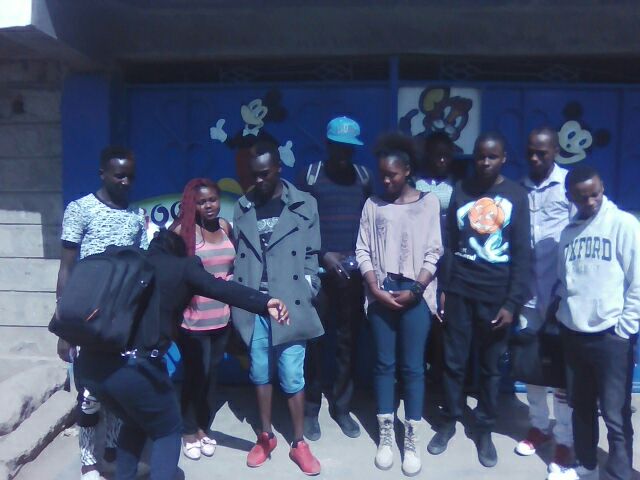Street Theatre in Nairobi City, Kenya: 2018 Microgrant Update

One of our 2018 BWB Community Microgrant Winners is Street Theatre by Kabuor Theatre Group in Nairobi City, Kenya.
Kabuor Theatre Group (KTG) is a children’s theatre troupe made up of children who faced challenges including homelessness and drug use. The group has developed into an exciting performance group who live and work together and use their commitment to performance to support the personal development and social reintegration of participating children.
The objectives of Street Theatre project are:
– to advocate the rights of all children and motivate audiences to develop home-grown solutions to the problems faced by children in their own communities;
– to promote the use of theatre and performing arts as a community education resources and develop the capacity of grassroots theatre to educate and motivate the community.
Project leader Helidah Munga describes the project:
KTG believes that theatre is potentially the most effective method of communicating development messages to grassroots communities especially when the shows are created by members of the community. Therefore, Kabuor Theatre Group’s shows are created by the children themselves and genuinely reflect the kids own ideas and experiences. For the performers – all ex-street children – participation in the troupe stimulates creativity, provides a sense of belonging and solidarity, and encourages them to come to terms with their experiences, communicates their ideas and feelings to others. The project provides its audiences with information, ideas and motivation that will help them to reflect and address the underlying causes of violence against children. By raising awareness about violence against children the group aims to improve the level of knowledge, reflection and understanding around the harmful effects of child abuse and influence the cultural and social norms which justify it or place it under the disguise of discipline. The assumption is that if people become aware of the harmful effect of child abuse this can catalyze the long -term decrease in violence against children in the community.
26 youth members and 5 adults participated in the Street Theatre project with Kabuor Theatre Group.
Report Out:
Several skits were performed to members of the public consisting of children and adults in different forums on the theme of violence against children.The play took audience straight in the everyday life of a family living in a city suburb portraying the harmful effects of violence against children and casting light on the environment on which it often takes place.It asks us the question: what went wrong inn the lives of these children and how can it be prevented? The play ” kosa la nani?” ( whose fault?) We get to meet the adolescent daughter, Pendo, who spends all her time in the home helping her mother with housework and serving customers with locally brewed alcohol. The son, Agwati, struggles to balance the demands from primary school with the many tasks facing him in the household. Both the children experience harsh treatment from their parents, and as time goes by, each one of them feel forced to look for a life away from their mother and father!
This project is changing the community by raising awareness about violence against children and the change we want to see – in legislation, communities, families, services, institutions and organizations . [In order to make change] we must first acknowledge the nature of the problem and its extent by bringing violence into the open – really start talking about ‘’ The Silence must be broken’’. Drama allows the audience to think about their own solutions for the problems presented- all of which is expressed and heard through interactive audience questioning. During the performance, audiences completed a simple written exercise where the men, women and children were given an opportunity to reflect and express their answers to the following two questions:
1. What kind of things happen between children and adults, or between children and the community as a whole, that you don’t like to see happening?
Answers included:
I don’t like to see a child is caned; I don’t like to see a child abused; I would not like to see that a child lacks three meals a day; I would not like to see a child lacks care; I would not like to see a child lacks primary education; For the teacher to punish a child instead of explaining to him how to get an education; Things which I don’t like to is for children to be sent to work and not to get time to study and parents who don’t have time to give children time to study etc
2. What kind of things, concerning children, would you like to see happening in families or in the community as a whole?
Answers included:
The child is given food; The child is given a good place to sleep; Care; The child should get three meals a day; Better education for the child; The family should be protectors of rights of children; For all street children to be brought to school; Closeness in between family and children; First of all we should stop stigmatizing children because we have given birth to them ourselves; Even if our needs are heavy, let us not abuse them etc.
Our assumption is that if people become aware about the harmful effects of child abuse, this will catalyze a long – term decrease in the prevalence of violence against children in our communities. As many as 1200 people have already experienced this project.
The 2018 BWB community microgrant paid for transportation, meals, costumes and props- and covered 10% of the projects total budget.
To learn about upcoming BWB micro grant opportunities, subscribe to our newsletter.



